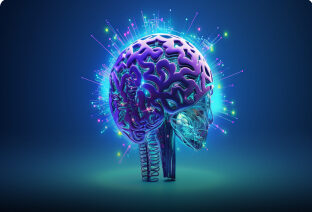With all the buzz around artificial intelligence and data science, many people are turning their attention to machine learning. But for those of us who’ve already stepped into this world, there’s usually a personal story behind it—a curiosity, a challenge, or a passion. So, why did I learn machine learning? The answer lies at the intersection of curiosity, impact, and future potential.
1. Curiosity About How Machines Think
I’ve always been fascinated by how things work—how a self-driving car makes decisions, how Netflix knows what I want to watch, or how Google Translate understands different languages. At the core of these innovations is machine learning. I wanted to understand the “magic” behind these smart technologies, and learning ML was the key to demystifying it.
Machine learning offers a practical way to teach machines how to learn from data, much like we humans learn from experience. That concept alone was intriguing enough to pull me in.
2. A Desire to Solve Real-World Problems
Learning machine learning wasn’t just about theory; it was about application. From predicting stock prices to detecting diseases early, ML has the power to solve complex real-world problems.
I was drawn to the idea of using data to make a difference. Whether it’s optimizing supply chains, reducing energy waste, or personalizing customer experiences—ML can create measurable impact. I wanted to be part of that.
3. The Intersection of Data, Math, and Code
I’ve always enjoyed working with numbers and logic. Machine learning brought together my interests in:
-
Mathematics (especially linear algebra, calculus, and probability)
-
Programming (Python became my go-to language)
-
Data (cleaning it, exploring it, and learning from it)
This combination made machine learning both intellectually stimulating and creatively satisfying. It’s like solving a puzzle with endless possibilities.
4. Career Opportunities and Future Demand
Let’s be honest—career prospects were also a big motivator. Machine learning and AI are among the most in-demand fields across industries. From tech startups to healthcare giants, every company wants data-literate talent.
By learning ML, I knew I’d be future-proofing my career and opening doors to roles like:
-
Data Scientist
-
ML Engineer
-
AI Researcher
-
Business Intelligence Analyst
It’s a field where learning never stops—and that’s exciting.
5. Empowering Innovation and Creativity
Machine learning isn’t just for tech companies. Artists, musicians, educators, and even farmers are using ML to do amazing things. From generating art to predicting crop yields, ML is becoming a creative tool across disciplines.
I learned machine learning to explore what’s possible. It gave me the ability to take an idea—no matter how ambitious—and turn it into something tangible using data and algorithms.
Final Thoughts
I didn’t learn machine learning just to add another skill to my resume—I learned it to understand the future, to build solutions, and to be part of something bigger than myself.
Machine learning is not just about code or data—it’s about learning how to learn, pushing boundaries, and turning questions into answers. And in that journey, I found not only new skills, but also a new way of seeing the world.

